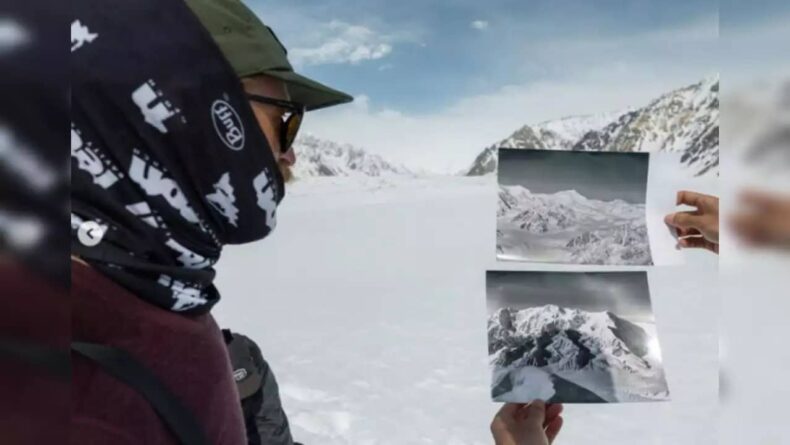The cache of recently discovered cameras contains images of how mountains looked 85 years ago.
A group of explorers just uncovered cameras abandoned by Yukon visitors 85 years ago. A team of explorers and professional mountaineer Griffin Post joined forces with a media company called Teton Gravity Research to look for a long-lost cache of cameras and other equipment in Canada‘s Kluane National Park.
The explorers almost overlooked them while searching for the old cameras. They just found them an hour before the chopper was supposed to pick them up.
Mountaineer Griffin Post said, “It was just so weird and affirming in so many ways when we finally saw the equipment that was without a doubt ours. Over the past 18 months, there has been a great deal of self-doubt.”
For the Search
Griffin Post partnered with Dora Medrzycka, a Ph.D. in physical geography, and glaciologist Luke Copland.
In the spring of 2022, Medrzycka joined the Teton Gravity Research team and headed towards the mountains, but she was unable to locate the cameras. In August, they set out once more, but this time they were beginning to lose hope. But the group didn’t give up.
In order to locate the cameras, Medrzycka looked at previous satellite photographs of the area where the incident had taken place. The Walsh Glacier has grown by two times, according to glaciologists, since the 1930s. The cracks in the moraine, according to Medrzycka, occurred throughout the ascent.
Into the Mountains
The team began searching on foot, skis, and snowboards after arriving in the area. “We had a general concept of where to go first, but nothing very specific,” Medrzycka added, noting that they had walked many miles up and down the glacier. “We had a hard time finding it because we couldn’t find it anywhere.”

She noticed that there were piles of debris all the way along the glacier, and she assumed the surge was to blame. This provided her with information about how and when the glacier had flowed in the past. She was able to recalculate the distance to the items’ potential location based on the observation, which she determined to be three to four miles down the valley and roughly 14 miles from the location where Washburn had left them.
Her intuition eventually led the team to the missing equipment. “It was an incredible feeling, and I felt relieved that I didn’t fail to find the cache,” Medrzycka said, adding that “it was an incredible moment for everyone.”
Back in 1937
Over 80 years ago, in 1937, Bradford Washburn and Robert Bates were attempting to climb Mount Lucania in Canada’s icy Yukon territory’s Saint Elias Mountain range when bad weather caused them to leave the heavy camera equipment, surveying gear, and supplies behind.

The goal of Washburn and Bates’ mission was to attempt the ascent of Mount Lucania, Canada’s third-highest peak of 5,226 meters (17,145 feet). At the time, it was the highest peak ever climbed in North America.
Henry Bradford Washburn Jr. was an explorer, mountaineer, photographer, and cartographer from the United States. He founded the Boston Museum of Science, presided over it as its director from 1939 to 1980, and then continued to do so as its honorary director from 1985 until his passing in 2007 at the age of 96.
Another mountaineer, writer, and educator, Robert Hicks Bates, passed away in 2007 as well.
Retrieving the camera
Archaeologists from Parks Canada returned to the glacier with the expedition team weeks later to retrieve the camera from the ice. A major chunk of Washburn’s Fairchild F-8 aerial camera was discovered, as well as two motion picture cameras with film still loaded inside, hiking poles, tents, and other survival supplies.

The team was aware that Washburn had taken pictures of the surroundings prior to leaving his equipment, according to Medrzycka. In an effort to preserve the photographs, they are now preparing to develop the vintage film.
In the lost cameras of travelers Bradford Washburn and Robert Bates, they were specifically hunting for a fragment of history.
Also Read: At the Red Sea Tiran and Sanafir Islands, cameras will take the place of peacekeepers, Israel













